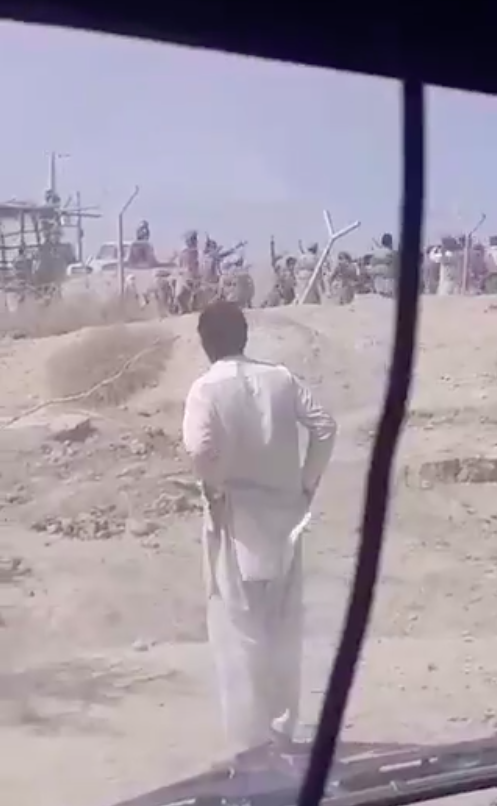
Please Follow us on Gab, Parler, Minds, Telegram, Rumble
By Dr. Alejo Vidal Quadras - President ISJ - Spanish professor of atomic and nuclear physics. Vice-president of the European Parliament (1999-2014).
On March 1, the International Trade Center intends to initiate a three-day summit on European-Iranian trade relations, on the basis of its dual mandate from the World Trade Organization and the United Nations Conference on Trade and Development. The event was originally scheduled for December but was postponed after several of the European participants withdrew in response to the news that Iran had executed an opposition journalist and resident of France, after kidnapping him.
The Iranian regime has failed to atone for the internationally condemned killing of Ruhollah Zam or to provide any assurances that it won’t pursue similar actions in the future. Quite to the contrary, the regime has remained publicly defiant and given every impression that it will continue to hunt down dissidents outside its borders.
The mullahs have had an atrocious track record. In 1988, the regime’s founder Khomeini issued a fatwa declaring opposition activists to be enemies of God, thereby making them subject to summary executions. In the summer of that year, “death commissions” in various Iranian prisons implemented that edict.
Approximately 30,000 peaceful activists were hanged by the death commissions over just a few months during the 1988 massacre, and to this day not a single Iranian official has been held accountable for the killings.
Various groups have continued to raise the issue of this massacre over the years, and a group of senior UN human rights experts sent a letter to Iranian authorities last year urging an end to the longstanding cover-up. The West and the UN have largely turned a blind eye to this egregious crime against humanity.
The text of the recent UN experts' letter noted that in 1988, "the failure of these [UN] bodies to act had a devastating impact on the survivors and families as well as on the general situation of human rights in Iran.” It added that this also encouraged an ongoing “strategy of deflection and denial.”
The letter offers little specific comment on issues beyond the 1988 massacre, but it stands to reason that its authors would have a similarly harsh assessment of contemporary incidents like the rescheduling of the Europe-Iran Business Forum. This effectively constitutes a reward to the Islamic Republic, in exchange for nothing other than remaining more or less silent while the world’s attention drifted away from the Zam execution and related human rights abuses. Such rewards threaten to encourage still more of the same “deflection and denial” from a regime that has enjoyed decades of contributions to its own sense of impunity.
Last December also marked the second session in the trial of Assadollah Assadi and his three accomplices – a trial that concluded earlier this month with a guilty verdict for all four and a 20 year sentence for the principal defendant, a former high-ranking diplomat at the Iranian embassy in Vienna.
The trial, which took place in Belgium, confirmed Assadi’s role as the mastermind of a terror plot that was meant to kill the President-elect of the main opposition National Council of Resistance of Iran (NCRI), Mrs. Maryam Rajavi.
According to a significant bipartisan resolution that condemned the terror plot, and was cosponsored by more than 113 US lawmakers last week, "On June 30, 2018, tens of thousands of people gathered in Paris at the Free Iran gathering where they supported advocates for a democratic, secular, and non-nuclear Republic of Iran, and showed support for the opposition leader Maryam Rajavi’s 10-point plan for the future of Iran. ... Assadi took an Iranian-made bomb from Iran to Europe on a commercial flight and delivered it to his accomplices with the aim of causing mass casualties at the Free Iran gathering in Paris in 2018."
On its own, the target location of that attack should be enough to convince European leaders that Iranian impunity is not just a threat to pro-democracy voices inside Iran; it is also a direct threat to Western citizens. The June 2018 Free Iran rally included participation from dozens of European lawmakers, scholars, and foreign policy experts.
More than 20 members of the European Parliament recently tied the terrorism issue to the regime's human rights abuses. “The domestic policy of repression and [the foreign policy of] exporting terrorism and fundamentalism… have been the foundation of Iran’s survival strategy for decades,” they said.
In the interest of undermining that strategy, the statement urged the nations of Europe to make it clear that improvement in both areas is a precondition for all future trade relations with the regime. Unfortunately, this advice was plainly ignored by the organizers of the Europe-Iran Business Forum when they announced that the event would be going forward as originally planned.
The organizers still have two weeks to reverse this decision, but if they will not then it will be the responsibility of other European governmental and commercial entities to send the message that the International Trade Center does not speak for them. The Iranian regime must be held accountable for its domestic rights violations and terrorism abroad.
Subscribe to our evening newsletter to stay informed during these challenging times!!